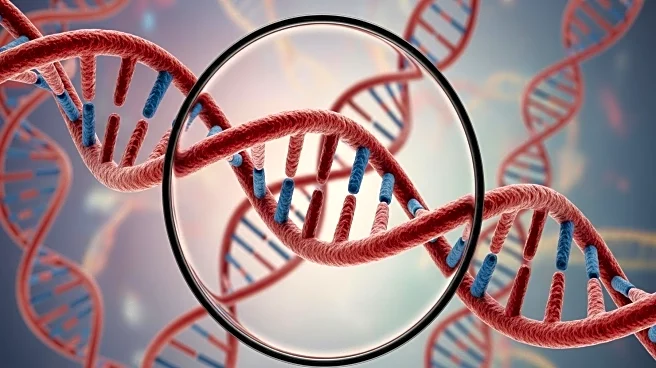What is the story about?
What's Happening?
Researchers at the University of Tokyo have discovered large DNA elements, termed 'Inocles', residing in the human mouth. These elements, found in nearly 74% of the population, are believed to play a role in oral health, immunity, and possibly cancer risk. The study, led by Yuya Kiguchi and his team, utilized advanced long-read sequencing technology to identify these extrachromosomal DNA elements, which are hosted by the bacterium Streptococcus salivarius. The discovery of Inocles, which are significantly larger than typical plasmids, marks a significant advancement in understanding the oral microbiome and its potential impact on human health.
Why It's Important?
The identification of Inocles could have profound implications for public health and microbiome research. As these DNA elements may influence oral health conditions such as cavities and gum disease, understanding their function could lead to new preventive or therapeutic strategies. Additionally, the potential link between Inocles and serious diseases like cancer highlights the need for further research. This discovery underscores the complexity of the human microbiome and its role in health and disease, potentially paving the way for personalized medicine approaches that consider individual microbiome compositions.
What's Next?
Future research will focus on developing methods to culture bacteria containing Inocles to better understand their functions and potential health impacts. Researchers aim to explore whether Inocles can spread between individuals and how they might influence various oral health conditions. The team plans to use a combination of laboratory experiments and computational simulations to characterize the unstudied genes within Inocles, which could reveal new insights into their role in human health.















